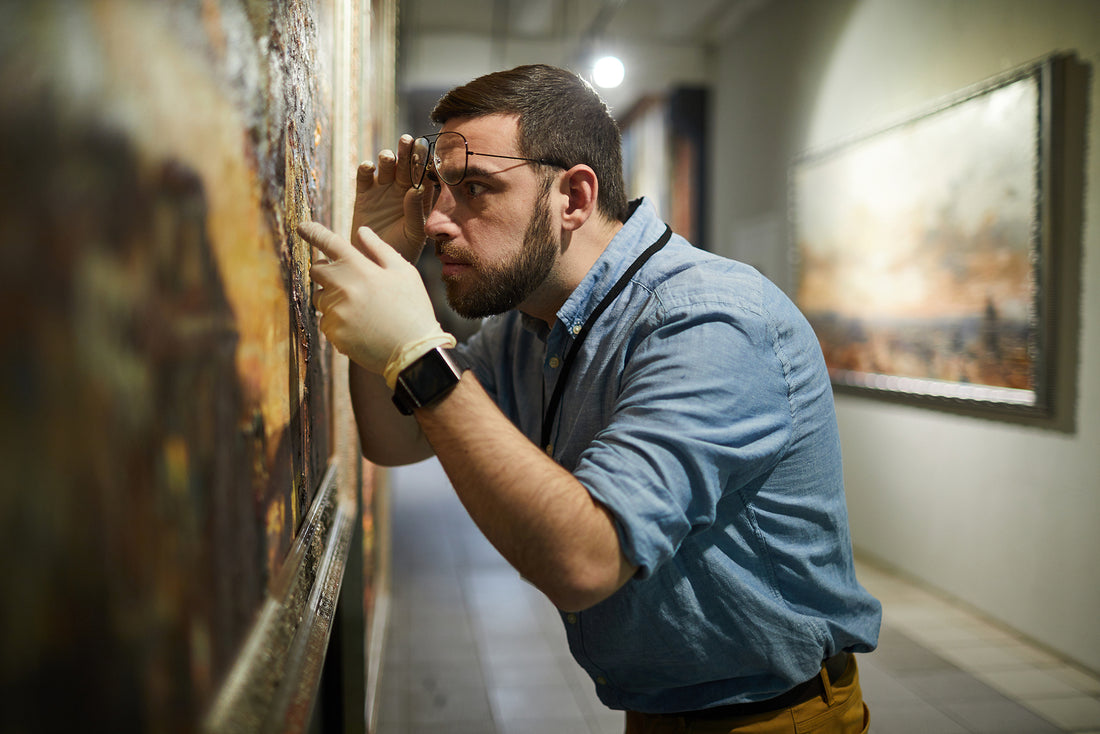Art Appraisal
Appraising your art:
- Research the artist: Look up information about the artist, such as background, career, and notable works. This will give you an idea of the artist's standing in the art world and help you determine their work's value.
- Determine the medium: The medium used (e.g., oil paint, watercolor, etc.) can affect the piece's value.
- Consider the condition: The artwork's disease can also affect its value. Determine if the piece is in good condition or has any damages or repairs.
- Look at comparable sales: Look up similar works by the same artist or in the same medium to see how much they have sold for in the past. This will give you an idea of the value of your artwork.
- Consult an expert: If you are still trying to figure out the value of your artwork, consider consulting an art appraiser or art dealer. They will be able to give you a more accurate appraisal based on their expertise and access to market data.
- Provenance: The history of ownership of a piece of art can affect its value. If the artwork has a documented provenance (history of ownership), it can increase its value.
- Rarity: A unique or rare piece of art may be more valuable than a more common piece.
- Age: Older art pieces are generally more valuable than newer ones, especially by a well-known artists.
- Size: Larger art pieces are often more valuable than smaller ones, but this is only sometimes the case.
- Subject matter: Art depicting famous or culturally significant issues may be more valuable than art with less famous or meaningful cases.
- Exhibition history: If the artwork has been exhibited at prestigious galleries or museums, it may be more valuable.
It's also important to remember that the value of art can change over time due to changes in the art market, the artist's reputation, and other factors.
How do I find an art appraiser?
There are a few ways you can find an art appraiser:
- Search online directories: Many online directories list art appraisers by location and specialty. Some guides include the International Society of Appraisers, the American Society of Appraisers, and the Appraisers Association of America.
- Ask for recommendations: Ask other art collectors, dealers, or auction houses. These professionals can suggest reputable appraisers in your area.
- Check with local museums or universities: Many museums and universities have staff members trained as appraisers, or they may be able to refer you to an appraiser in the area.
- Contact your insurance company: Your insurance company may be able to recommend an appraiser who can provide a value for your artwork for insurance purposes.
When selecting an appraiser, it's essential to choose someone who is qualified and has experience in the type of artwork you own. Also, could you ask for references and check the appraiser's credentials before hiring them?

